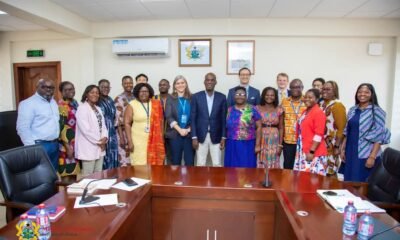News
Plight of deaf women in Ghana
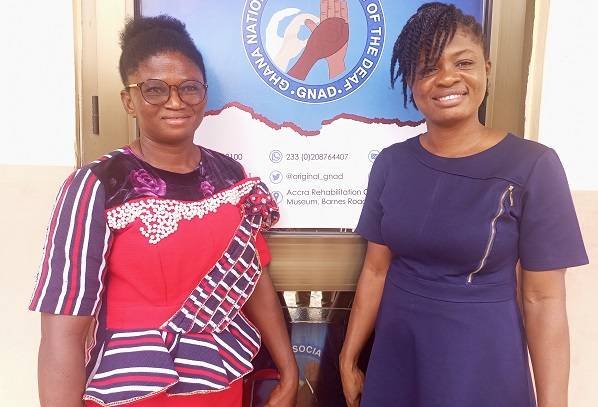
Ms Yaghr(left) and Mrs Adjei (right)
Women in Ghana go through multiple challenges ranging from emotional, psychological and economic trials.
They are often at the bottom of the social order with poor access to health, education, credit and access to land.
The situation is even more worrying if they have any form of disability.
In the case of the deaf women, they suffer discrimination and stigmatisation in areas such as health, education and commerce due to their inability to communicate effectively.
Deaf women are sometimes misdiagnosed at the hospitals, cheated at the market places while others are denied education, an act which defeats the Sustainable Development Goals five and 10 which talks about gender equality and reduced inequalities.
Population
In Ghana, according to the 2021 Population and Housing Census (PHC), about 470,737 people have some degree of hearing loss. Out of the number, 385,794 have some difficulties, 65,495 have a lot of difficulties while 19,448 cannot hear at all.
Two deaf women, Ms Christiana Yaghr and Mrs Mabel Mintaah Adjei, shared their experiences with The Spectator newspaper last Thursday, bringing to the fore the challenges they face in the health, education and other sectors of the country.
According to them the basic and common challenge to the deaf community is communication which they described as the pivot that all other problems revolved.
Mrs Adjei’s biggest concern is the treatment often meted to them at health facilities.
She explained that deaf women were sometimes delayed at the hospital because health practitioners do not understand them and vice versa.
“We are unduly delayed at the hospitals to the extent that when those who can hear come to meet us at the hospital, they are attended to, leaving us sometimes to our fate,” she said.
Mrs Adjei said deaf women are denied information on breast cancer, menstruation, mental, sexual and reproductive health as well as other ailments associated with women.
“Due to the inability to communicate, some deaf mothers do not know how to breastfeed their babies after giving birth or even know the right food to give the babies after weaning them; this is a big challenge,” she said.
Mrs Adjei said some hearing people refuse to transact business with the deaf, adding that “we can do everything hearing people do, we can engage in marketing, advertisement and other businesses.”
According to Ms Yaghr who is currently studying Special Education at the University of Education, Winneba, her friend who was deaf, had to be operated on thrice during childbirth because she could not get the information being passed on to pregnant women at the antenatal sessions.
She said as a result, most deaf women do not visit the hospitals when they are either sick or pregnant.
Plight
Shedding more light on their plight, Ms Yaghr said, deaf women most often prefer to buy at the shopping malls and stores instead of the open markets because they feel safe and comfortable there.
She said at the shopping malls, they use a lot of gestures to express what they want to buy but at the open markets the market women sometimes try to cheat them which occasionally ends up in misunderstandings.
“We sometimes try to read the lips of the market women and ask the price of the items from different people before settling on whom to buy from,” she added.
She noted that it was unfortunate some market women think they cannot calculate the things they buy, for which reason they attempt to inflate the prices.
This, according to her, makes it uncomfortable for them to buy at the market, hence the decision to buy from shopping malls and other outlets.
With regard to education, they both agreed that the fees were not expensive but what affects them was hiring a sign language interpreter.
Mrs Adjei who is studying Basic Education, Distance Learning option at the University of Education, Winneba says “I pay my sign language interpreter GH¢700 a month, so you can imagine the money I would have paid my interpreter after my education,” she added.
Both women called on the Ghana National Association of the Deaf (GNAD) to lead the charge to fight stigmatisation and discrimination against the deaf women, stating that “our leaders must take our issues to the authorities.”
Advocacy
They said, once the advocacy on the adoption of Ghanaian Sign Language (GSL) is intensified and gains recognition by government as the official language for the deaf and legally backed and approved as one of the national languages, it would mitigate some of the challenges encountered by them, especially the women.
“We have to start teaching sign language in schools to make it easier for the hearing population to know the right terminologies for the deaf and be able to communicate with them,” Ms Yaghr said.
“It is my hope that once the GSL is recognised and approved, Ghanaian sign language will be inculcated into the school’s curriculum and taught in schools.
“This will allow more hearing people to learn and appreciate sign language as well as study about deafness and promote socialisation and bridge the gap between the deaf and hearing community in the country,” she said.
Ms Yaghr said there was no difference between those who can hear and deaf women, and called on government to see to the healthcare and welfare needs of deaf women in the country.
She admitted that GNAD had organised some training on women’s health but was not enough as they were not able to reach out to hearing-impaired women in other parts of the country.
Mrs Adjei urged her colleague women to further their education as most of them had refused to continue after Junior High School (JHS), saying an educated woman was an empowered woman.
She again urged them to be confident, believe in themselves, have a positive mindset and use their talents judiciously.
By Jemima Esinam Kuatsinu
News
President Mahama to refer ORAL findings to investigative agencies
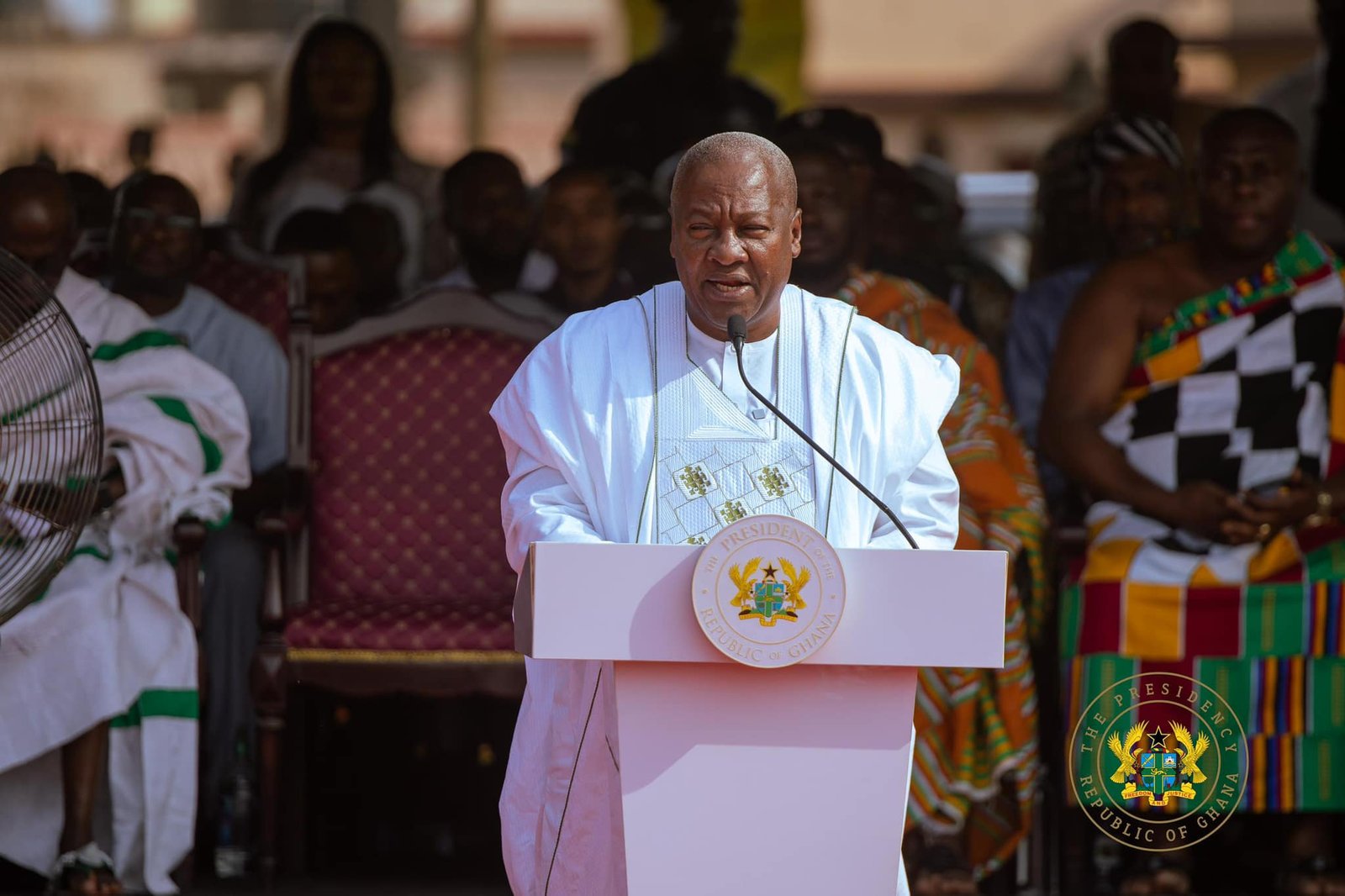
President John Dramani Mahama has revealed that findings from the Operation Recover All Loot (ORAL) Committee will be referred to relevant investigative agencies.
This will enhance the relevant agencies probe individuals suspected of misappropriating state resources.
The president also revealed that the committee is set to present its report next week.
He made the revelation during his ‘Thank You’ tour of the Central Region on Thursday, February 6, 2025.
“Next week, the ORAL committee that I set up is going to present its report to me. And I will refer it to the investigative organisations to start their investigations against people who have misappropriated the resources of this nation,” he revealed.
The President further reiterated plans to introduce a robust accountability framework and a code of conduct for individuals in positions of trust, adding that his administration will hold both former and current officials to the same high ethical standards.
“Even as we investigate those who have just left office, and we carry out our Operation Recover All Loot, those who are current office bearers should also know that they will be held to the same standard as we are holding the past regime,” he asserted.
News
Stakeholders gear up for 2nd Blue Economy Conference
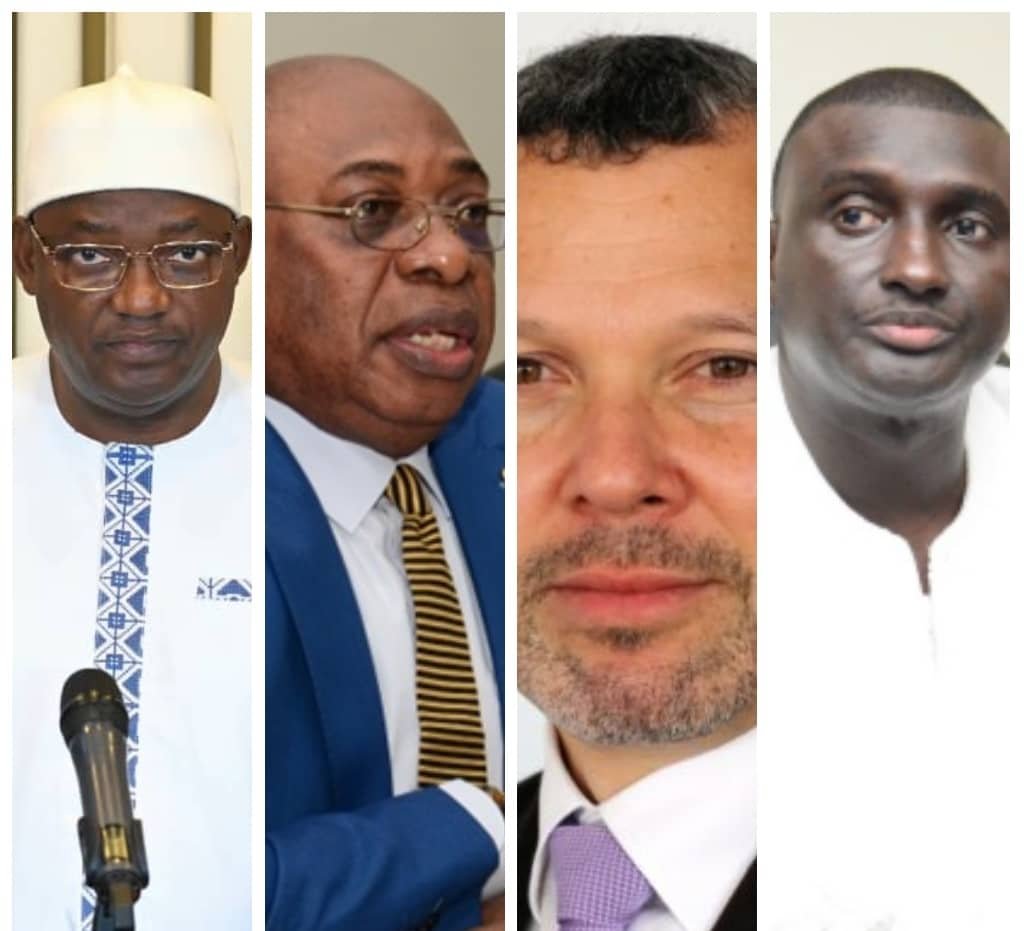
All is set for the much-anticipated second (2nd) International Blue Economy Conference (IBEG-2025) scheduled for February 19-21, 2025 in the Republic of The Gambia.
Under the auspices of the Ministry of Transport, Works and Infrastructure, the Gambia in collaboration with the Regional Maritime University(RMU) in Accra and the Dar es Salaam Maritime Institute,Tanzania,the conference would be held under the theme, “Harnessing the Blue Economy: Leveraging for Innovative and Sustainable Development”.


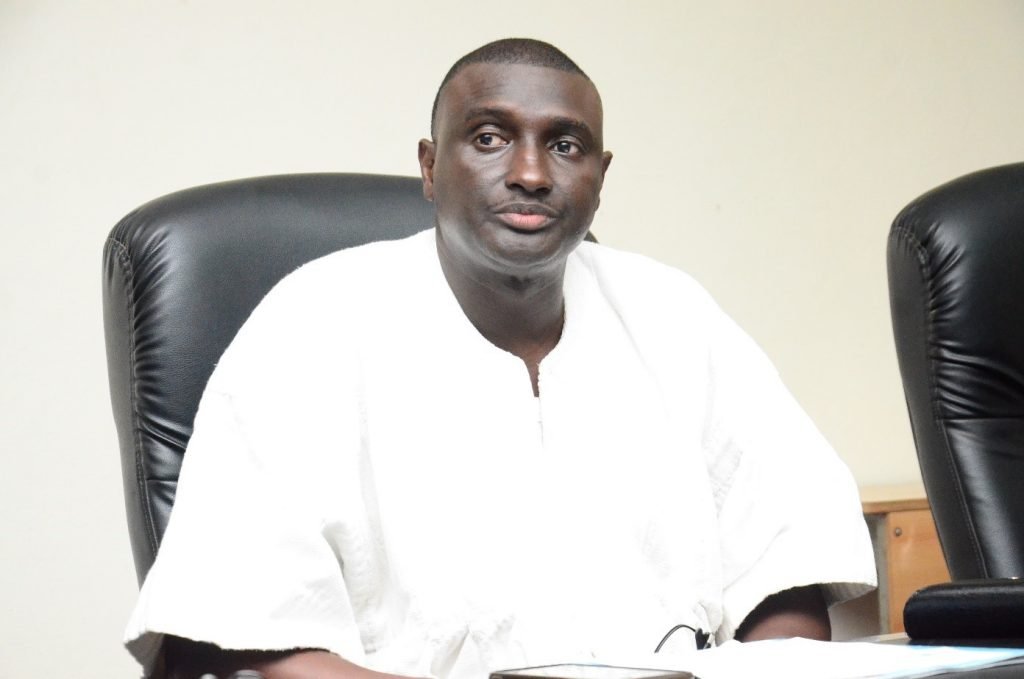
According to a press release issued in Accra, the conference forms part of efforts to bring together international stakeholders to share ideas on promoting the blue economy to subsequently lead development across the continent, by tapping into prospects within the industry.
It added that, the conference would seek to bring together partners to promote the innovative and sustainable use of the blue economy within the context of maritime security, safety and development and to establish a platform for knowledge sharing, networking and capacity building among stakeholders and partners, leveraging innovative and sustainable development.
Keynote speaker for the conference, it announced, would be the President of the Republic of The Gambia, Mr Adama Barrow as well as several high-profile dignitaries including the Secretary General of the International Maritime Organisation (IMO), Mr Arsenio Dominguez, Secretary General of MOWCA Dr Paul Ikongshul Adalikwu and ministers from across the continent would be in attendance.
Other speakers it said include, the Minister for Blue Economy, Zanzibar, Tanzania, Mr Shaaba Othman, Prof. Dr Moenieba Isaacs of the Institute for Poverty, Land and Agrarian Studies School of Economics and Management Sciences University of the Western Cape, South Africa, Managing Director Adept Blue Economic Solutions, Kenya, Dr Nancy Kairaria and Former Chief of Staff, United Nations (UN) Economic Commission for Africa and Managing Director Centric Digital-Ghana, Dr Aida Opohu-Mensah.
“The rest are, Director General Tanzania Fisheries Research Institute, Tanzania,Mr Ismael A. Kimirei, Director of Fisheries and Aquaculture Development, Ministry of Blue Economy and Fisheries, Tanzania Dr Salum Soud HAMED, Maritime Law Consultant, Dr Emmanuel Mbiah and former Vice Chancellor, University of The Gambia Prof. Dr Felixtina Jonsyn-Ellis,” it added.
“There would be other sub-themes for discussion including Sustainable fisheries and Aquaculture (Offshore and Coastal Fisheries), Ocean Renewable Energy, Eco-tourism and Marine Conservation, Blue technology and Innovation, Ocean Governance and Policy, Maritime Legislation as well as Climate Resilience and adaptation,” it stated.
In addition, it said, would be conversations on Sustainable Shipping and Transportation, Development of Coastal Infrastructure, Environmental Sustainability, Sectorial and Institutional Linkages, Maritime Safety and Security, Decarbonization of Maritime Transportation, Marine/Coastal Tourism and Hospitality, Marine Digitalization and Marine Artificial Intelligence (AI in Maritime).
“Other areas to be tackled would be Oil and Gas, Marine Technological Innovation, International Cooperation in the Maritime Sector, Maritime Transport and Port Development, Marine Biotechnology, Climate Change and Coastal Resilience and Digital Transformation in the Blue Economy,” it stressed.
Ultimately, the conference would offer a huge opportunity for Africa to take advantage of the huge potentials within the blue economy to foster development.






